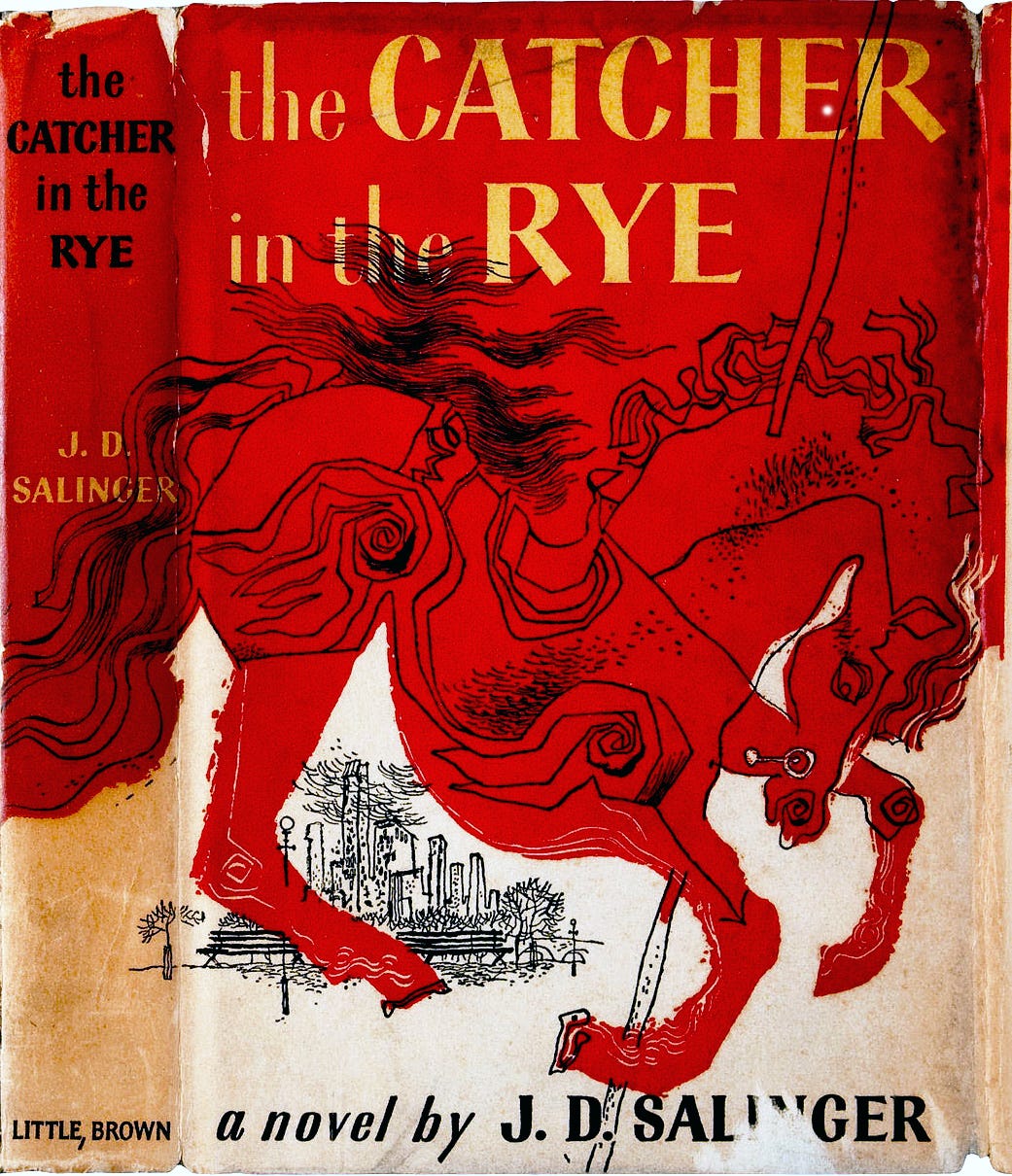What to Learn from *The Catcher in the Rye*
I recently re-read J.D.Salinger’s 1951 classic, The Catcher in the Rye, prompting Tyler to do the same. My top reactions:
1. Other than losing his brother Allie, Holden has no external problems. He is a rich kid living in the most amazing city in the world. Rather than appreciating his good fortune or trying to make the most of his bountiful opportunities, Holden seeks out fruitless conflict. If you still doubt that happiness fundamentally reflects personality, not circumstances, CITR can teach you something.
2. Nothing on Holden’s Five Factor personality googles. I say he’s high in Opennness, low in Conscientiousness, high in Extraversion, low in Agreeableness, and high in Neuroticism.
3. Although I was a teen-age misanthrope, anti-hero Holden Caulfield is more dysfunctional than I ever was. My dream was for everyone I disliked to leave me alone. Holden, in contrast, habitually seeks out the company of people he dislikes, then quarrels with them when they act as expected.
4. Even if Holden’s enduring antipathy for “phonies” were justified, it’s hard to see why the epithet applies to most of its targets. Consider this passage:
One of the biggest reasons I left Elkton Hills was because I was surrounded by phonies. That’s all. They were coming in the goddam window. For instance, they had this headmaster, Mr. Haas, that was the phoniest bastard I ever met in my life. Ten times worse than old Thurmer. On Sundays, for instance, old Haas went around shaking hands with everybody’s parents when they drove up to school. He’d be charming as hell and all. Except if some boy had little old funny-looking parents. You should’ve seen the way he did with my roommate’s parents. I mean if a boy’s mother was sort of fat or corny-looking or something, and if somebody’s father was one of those guys that wear those suits with very big shoulders and corny black-and-white shoes, then old Haas would just shake hands with them and give them a phony smile and then he’d go talk, for maybe a half an hour, with somebody else’s parents.
Translation: Haas is cordial to everyone, but likes some people more than others. What precisely is “phony” about that? For Holden, the main symptom of phoniness is that someone appears to like something Holden doesn’t. But he never wonders, “Is it possible that other people sincerely like stuff I don’t?”
5. If phonies are your biggest problem, your problems are none too serious.
6. You might think that only a navel-gazing New York intellectual could write CITR, but Salinger experienced far worse things than phonies. He fought in the D-Day invasion and the Battle of the Bulge. He entered a liberated concentration camp in April, 1945. Yet strangely, the moral of CITR isn’t that Holden’s self-pity is shameful.
7. I doubt Salinger was being Straussian. Like most of CITR‘s fans, he thought Holden has important things to teach us. Yet the book’s deepest and most important lesson is that Holden’s thoughts are profoundly shallow and unimportant. The Holdens of the world should stop talking and start listening, for they have little to teach and much to learn.
The post appeared first on Econlib.



You’re half right. Holden has something to teach us, but through empathy, not admiration.
Holden is defensive, irresolute, neurotic, etc., but it’s quite clear that those are secondary consequences of his vulnerability. He uses the word “sort of” 179 times in the book, he is constantly beginning his sentences with the word “Listen”, but usually to no avail. The only adult who does listen makes a sexual advance upon him, something which has happened to him “about 20 times since I was a kid.”
At the end of the book, Lucy does listen to him, and hands him the red hat which he relies on as a talisman to give him strength. And we know this isn’t just a fleeting moment because the book is written in first person from one year in the future. Holden has found the courage to express his vulnerability, and The Catcher in the Rye is the story of how he struggled and eventually succeeded in finding that courage.
As readers, we are not left with any promises that Holden improves, but we are at least shown what Holden needs. If he can find people to empathise with him, ie, you the reader, he may become less neurotic and more admirable. But if he goes to war as Salinger did, he is unlikely to achieve Salinger’s heroism.
As economists, we may conclude that it is not worth our time and resources to ensure that someone listens to Holden. It is also understandable that the adults in his life are repulsed by Holden’s whining and intransigence. But what we learn from The Catcher in the Rye (ie, from Holden-as-first-person-narrator) is that those same adults could have done a lot better at little cost to themselves by just crossing the street to walk alongside him for a little while. Perhaps they would have been more inclined to do so if Holden had been more admirable or agreeable, but then he probably wouldn’t have needed them in the first place.
I think what is great about that book is that it made me empathize with Holden - a person I would find absolutely unbearable in real life. Yes, he's screwed up, that's the point. Many of us went through similar things as teenagers. If Holden had met me when I was 16, he would have hated me, too.